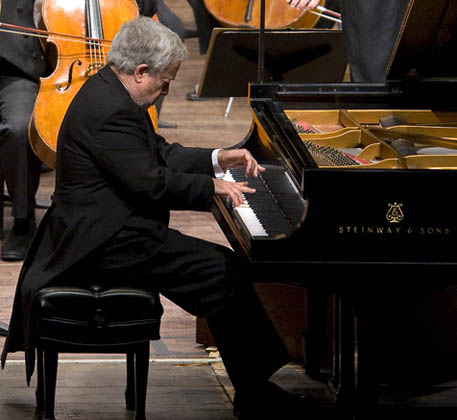St. Petersburg Philharmonic Orchestra
At the Arlington Theatre, Tuesday, November 13.

What would Santa Barbara’s window on global orchestral culture be without the Community Arts Music Association (CAMA)? That question descended on waves of glorious symphonic sound at the Arlington last week as the St. Petersburg Philharmonic Orchestra (SPPO) kicked off this season of its orchestra series in formidable style. A robust band with roots going back to 1802, the SPPO has now visited Santa Barbara three times courtesy of CAMA. Under the firm guidance of associate conductor Nikolai Alexeev-filling in on tour for principle conductor Yuri Temirkanov-the orchestra showed its mettle and muscle (especially the latter) in a satisfying program of Schubert, Schumann, and Prokofiev. Perhaps not surprisingly, the highlight came last, as the orchestra infused the score of its countryman composer with uncommon insight and power.
Things started out well with Schubert’s “Rosamunde” Entr’acte music, written for Helmina von Chezy’s now-forgotten play. But the music lives on, and for good reason. The piece requires-and benefited here from-a steady orchestral treatment, emerging as a broodingly lovely, lyrical opener.
Brazilian-born pianist Nelson Freire acquitted himself masterfully in Schumann’s Concerto for Piano and Orchestra in A Minor, Opus 54, a piece in which his deep, neurotic love for his piano virtuoso wife, Clara, coats the music in a dramatic backstory. Freire gave a clear and forceful accounting of the score, resisting the pull of bathos in the slow movement, while leaping readily into the kinetic waltz feel of the final movement.
Things came most alive after intermission, with Prokofiev’s Fifth Symphony, penned toward the tail end of WWII, in 1944. One sensed the comforts and the passions of home in the orchestra’s performance.
As with Shostakovich, Prokofiev offers fascinating examples of how to channel intense, semi-Modernist creative energies while working “within the system.” In his Fifth, Prokofiev works up themes brimming with something akin to post-romantic, nationalist pride, but spiked with twists which slyly betray their 20th century vintage and a veneer of intellectual freedom.
As the SPPO navigated the four-movement edifice, there were no slack or ambiguous moments, yet the music itself hides a sense of questioning. The finale builds to its sure, resolute climax, but nattering fourths tauntingly withhold easy closure. Even in its final measures, suspension rules. Great show, this.



